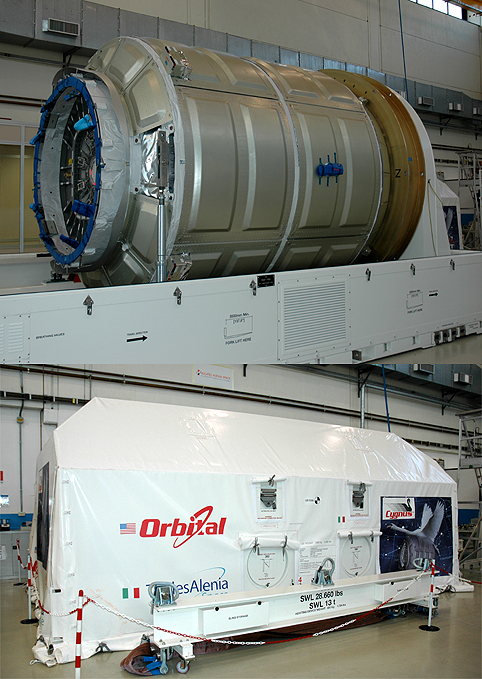The Cygnus spacecraft consists of a service module (SM), built by Orbital, integrated with the PCM pressurized module developed by Thales Alenia Space. Based on thirty years of experience in the infrastructures and transport systems field, the Cygnus PCMs developed by Thales Alenia Space are based on the expertise and skills acquired on previous and similar programmes developed for the ISS, such as MPLM (Multi-Purpose Logistics Module), built by the company on behalf of the Italian Space Agency for NASA, and ATV (Automated Transfer Vehicle) Cargo Carrier, built by Thales Alenia Space for the European Space Agency. Thales Alenia Space provided for 50% of ISS pressurized volume, all manufactured in Turin. It is also a key player in the Columbus laboratory and was prime contractor for Node 2, Node 3 and Cupola elements.
In the picture: The body of the first PCM (Pressurized Cargo Module) manufactured by Thales Alenia Space (Turin) for the new Cygnus unmanned commercial resupply vehicle. On May 27, the module was ready fortransfer to Orbital Sciences Corporation in the USA. After integration with the Service Module, it will be used for the demonstration mission of the Cygnus programme. (Aeromedia)
(Aeromedia, May 2011)
